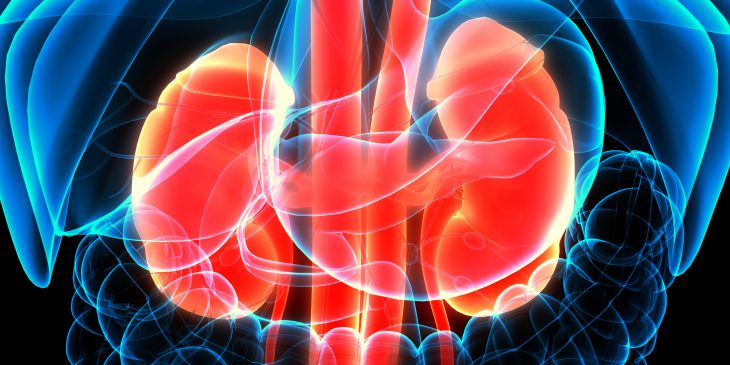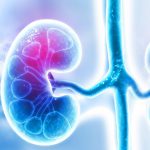COVID-19 may be accelerating a “silent” epidemic that’s been looming over the nation’s aging population for years: chronic kidney disease.
In a recent article in Nature Reviews Nephrology, Dr. Sachin Yende, a vice chair in the University of Pittsburgh’s Department of Critical Care Medicine, and a colleague at Johns Hopkins School of Public Health, Dr. Chirag Parikh, summed up research on kidney disease and COVID-19. They conclude with a warning that the virus is directly and indirectly exacerbating America’s kidney disease crisis.
“More than a quarter of patients hospitalized with COVID-19 are diagnosed with acute kidney injury, and other research indicates that more than a third of patients had reduced kidney function six months after COVID-19 hospitalization,” said Yende, also vice president of critical care at the VA Pittsburgh Health Care System. “We are concerned that acute kidney issues suffered by patients while fighting COVID-19 could persist. And that is on top of the pandemic worsening health care disparities and opportunities for preventive care among patients already most at risk of chronic kidney disease due to diabetes and high blood pressure.

Dr. Sachin Yende
“We may be staring down a tsunami of chronic kidney disease,” he said.
The kidneys are a pair of organs that filter waste and excess fluid from the blood. Chronic kidney disease occurs when the kidneys start to fail. Often patients have no symptoms, so it is referred to as a “silent disease.”
There are 37 million U.S. adults with chronic kidney disease, which can progress to kidney failure and require lifelong dialysis. The only cure is a kidney transplant, and there are not enough donor kidneys for everyone who needs one, so doctors concentrate on preventing the disease and slowing progression in patients who already have it.
“We expect that by 2030, 1 in 6 adults will have chronic kidney disease. These projections are likely to get much worse due to the effects COVID-19 has on kidneys,” said UPMC nephrologist Dr. Manisha Jhamb. “And perhaps the pandemic will increase chronic kidney disease in younger people, since they have higher chances of surviving COVID-19, and thus are more likely to develop post-COVID issues.”
She agreed with Yende that poor access to health care and telemedicine will worsen existing health disparities that result in Black people having disproportionately higher rates of chronic kidney disease. Her team recently published research showing that Black people and those with lower incomes have less access to electronic patient portals to manage their nephrology care and consulted these online records at half the frequency of their white or more affluent counterparts.

Dr. Manisha Jhamb
Yende noted that the increased attention to post-COVID or “long COVID” syndrome could be an opportunity for large, multi-center studies aimed at improving care for all patients after intensive care stays, with a particular focus on kidney health and mitigating health disparities – regardless of whether they survived COVID-19 or a different, serious illness.
“People have focused a lot on understanding COVID-19 patients,” he said. “But we should take this opportunity to better understand the effects of all critical illnesses on kidney disease.”
Jhamb, director of the Center for Population Health Management at UPMC, runs a study called Kidney-CHAMP that is testing an intervention to improve kidney care across a large UPMC population with the goal of delaying the onset of late-stage chronic kidney disease and kidney failure. For more information, visit www.kidneychamp.pitt.edu.








